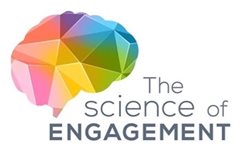How to Market to Wicked Smart People
Let me tell you a secret. In high school, I wormed my way out of taking required physics and chemistry classes but still managed to graduate. How did I get out of these required classes? Somehow I negotiated a crafty replacement of those courses with an Advanced Placement Biology class – which attracted me NOT because of the science but because the teacher had some quirky and controversial qualities that particularly intrigued my high school self. So there’s the extent of my science education (other than a wacky botany class I took in college).
 Jump to 2011, I’m working for a major science magazine and I am about to meet some of the brightest minds in the world at my first science conference - the American Geophysical Union in San Francisco where about 25,000 scientists and others in related fields were expected. Terrified, I greet my first booth visitor who literally breaks into a run towards me saying: “I love your magazine!”. Narrowly avoiding a collision but happy, I breathe a big sigh of relief and smile back “Thanks so much, so do we!” And so went the rest of the conference, people didn’t really want to talk to me about astronomy or climate science, they wanted to talk about the magazine. And because I read it and loved it (unlike my high school STEM avoiding self) I was able to effectively engage with pretty much everyone who I met over the course of the next year whether they were cancer researchers or neuroscientists. The bottom line is, as a marketer, you’re not expected to be a scientist, rocket or otherwise. The key is to love what you do and continually be aware and educated about what it is that your customers love too.
Jump to 2011, I’m working for a major science magazine and I am about to meet some of the brightest minds in the world at my first science conference - the American Geophysical Union in San Francisco where about 25,000 scientists and others in related fields were expected. Terrified, I greet my first booth visitor who literally breaks into a run towards me saying: “I love your magazine!”. Narrowly avoiding a collision but happy, I breathe a big sigh of relief and smile back “Thanks so much, so do we!” And so went the rest of the conference, people didn’t really want to talk to me about astronomy or climate science, they wanted to talk about the magazine. And because I read it and loved it (unlike my high school STEM avoiding self) I was able to effectively engage with pretty much everyone who I met over the course of the next year whether they were cancer researchers or neuroscientists. The bottom line is, as a marketer, you’re not expected to be a scientist, rocket or otherwise. The key is to love what you do and continually be aware and educated about what it is that your customers love too.
Immerse Yourself in the Industry
Don’t get me wrong, marketing to scientists or any sort of highly educated individual is by no means easy. It’s definitely super challenging work. So I recommend that if you really want to tackle marketing something outside your comfort zone the two qualities you’ll need are intellectual curiosity and persistence. The curiosity to be able to read… and read and read until you’ve figured out what everyone is talking about, and the persistence to not be intimidated when at first you really have no idea what the heck “Mesenchymal stem cells” are and have to look it up on Wikipedia. Think about it – whether you’re marketing custom made diamond jewelry to grooms-to-be or conferences to biotech VCs – knowing what interests and excites your audience is crucial and it’s a journey that requires data, testing, and research. I am lucky that I enjoy articles about the intersection of genomics and artificial intelligence much more than I enjoy what Kim Kardashian has chosen for her latest handbag, but that legwork to learn about and pay attention to your audience on digital media is essentially the same. And once you’ve learned the basics: topics that your audience is interested in, who the thought leaders are, what sort of content they enjoy – those concepts that seemed so insurmountable at the beginning become familiar and much less daunting. (I promise!)
“Faking It” Can & Will Tarnish Your Brand
I caution all marketers - never be confident to the point of carelessness. Once you’re entered into territory that is “above your paygrade” you have to be careful not to offend an educated audience – that’s where the sales engineers or other product experts can help. I am lucky in my roles that I have had access to science writers or, in the case of B2B technology, developers, to literally say: “Does this blog post I wrote make sense?” I’ve seen Tweets from major organizations, with hundreds of thousands of followers, that surprisingly lacked common biology knowledge. And last year I listened to a specialized podcast that talked about thirteen-year-old research like it was brand new. It’s not that different from a journalist writing a story who doesn’t bother to do background research. In both cases, those marketers could have Googled to find out what they were saying was incorrect. Always do your research. And If there’s some content that’s simply too heady or confusing and you can’t understand it even after repeated tries, pass on it. It’s best not to “fake” knowledge because it will be exposed and tarnish the brand.
When you look at it that way, you can really tackle anything. I have seen first-hand that some management teams are uncomfortable with non-techies or non-scientists marketing certain products because they’re used to “the experts” tackling content – and for these reasons, marketers have often been categorically resigned to busy work creating email campaigns or scheduling pre-written Tweets. I am proof that even the least scientifically or technically minded person, as long as they’re really interested and excited about their audience, can be successful marketing to “wicked smart people.”

Leah Kinthaert
Leah is a Demand Generation Expert with 10 years of B2C and B2B marketing experience and is currently a Digital Transformation Lead at Informa. Previously, she was Director of Marketing at Mobilengine where she managed content strategy, curation, and editorial to deliver creative, intelligent, and relevant content for their website and all social channels. Prior to Mobilengine, she was the Acquisition Marketing Manager at InsuraMatch.